Software Testing Training Videos
The Best Software Testing Training You Will Ever Get
This is a complete software testing video course. These are the recordings of our complete start to end LIVE course. There are more than 14+ HD training videos of Software Testing training with over 30 hours of training content.
Total Lectures: 15
Total Duration: 30+ hours
Get Instant Video Access:
==> Click here to get instant Video Course access.
What you will get with this Video Course?
- Over 15 lectures and 30+ hours of High Definition video content!
- Our premium Software Testing Career Package ebook free (valued $15)
- Lifetime access to all these videos – Pay one time fee and access video training sessions as many times as you want.
- Get all future course updates free!
Other Benefits of this Video Course:
- LIVE PROJECT End to End Software Testing Training Included
- Learn Software Testing and Automation basics from a professional trainer from your own desk
- Information packed practical training starting from basics to advanced testing techniques
- Best suitable for beginners to advanced level users and who learn faster when demonstrated
- Course content designed by considering current software testing technology and the job market
- Practical assignments at the end of every session
- Resume Preparation Guidance for Testers Included
- Download Real Software Testing Templates like Test Plan, Test Cases and other important Templates
- Software Testing Certification Guidance
- Learn Test and Defect Management Tools like JIRA, qTest, and Bugzilla
- Automation overview
- Getting Started with QTP
—————–
How to enroll?
You can enroll for this video course by making payment on below page.
=> Click here for Instant Access to this Online Video Course.
Once enrolled successfully you will get all details to access these videos, course and bonus material.
—————–
What is Included in this Online Video Course?
See course content below:
Day #1: SDLC and Introduction to Software Testing
Lecture Description:
In this lecture we will learn:
What is:
Software
Domain
Platform and
Testing
We will also find answers to the most common questions:
Why do we test?
Why do we have separate testing teams?
What does a tester’s job include?
Why choose a testing job?
And importantly – Qualities of a tester?
Day 1 – files and running notes
Please find the training plan, the SDLC, the use case we created in class and today’s running notes
1) Training Plan.xlsx
2) Running notes.docx
3) Gmail Login- example usecase
*******************************
**Note: Protected content below accessible for members only**
If you want to check more free demo sessions visit this please.
If you want to join our LIVE batch see details here.
*******************************
Day #2: V model, Verification and Validation, QA Vs QC
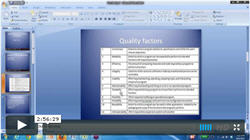
Lecture Description:
Manual testing basics class:
- What is software quality?
- What is Defect/ Error?
- V- model of software development
- When to stop testing?
Day 2 – files and running notes (You can download these files under all sessions when you enroll)
1) Testing phases.xlsx
2) Day 2.docx
*******************************
Day #3: Test Scenarios, Template, Agile Development, Types of testing
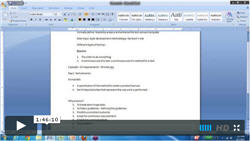
Lecture Description:
Main topic covered in this lecture: Agile development methodology- QA team’s role
- Different types of testing
- What is QA Process?
- Why process?
- What is Feasibility study?
- Agile methodology in detail
Day 3 – files and running notes
Please find today’s notes in the attachments.
There is also a zip file with the test scenarios you all created. Pick one for review as part of the day 3 assignment.
1) Day 3.docx
2) Day 3.xlsx
3) Pick one for assignment.zip
4) Product back log.xlsx
*******************************
Day #4: STLC, QA Processes
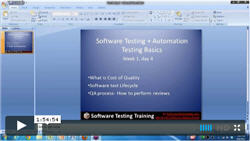
Lecture Description:
Software testing life cycle (STLC)
What you will learn about STLC:
1. Test planning – requirement analysis, test strategy, timelines, resources, infrastructure requirements, scope of testing
2. Test documentation – decide what all documents do we need- test scenarios, test case, defect reporting template/bug tracker, status report template, establish communication guidelines
3. Test environment set up – making your hardware, computers all set in the configuration, test data requirements and collecting
4. Test design- test cases are documented
5. Test execution- running your tests that you have documented and recording the results
6. Defect management/reporting
Day 4 – files and running notes
1) Day 4.docx
2) Training Plan.xlsx
*******************************
Day #5: Test cases, Test data, Test Script, Test Planning and Template
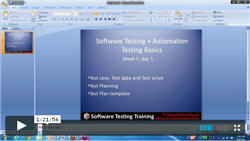
Lecture Description:
In this lecture you will learn:
What is test case?
What is test data?
What is test script?
Test Planning in detail:
Test plan:
1. Test scope – what are we testing? What are we not testing?
2. Test objectives- have all the scenarios listed, provide a link to the document
3. Resources – roles and responsibilities
4. Assumptions – the machine will be available to me the day before test cycle begins
5. Risk analysis –
6. Test design – test cases and the order of execution
7. Test schedules
8. Test data management – where will you get the data from, what kind of data,
9. Test environment
10. Link to a requirements is provided
11. Test approach
12. Approvals and sign off
13. Communication approach – reporting format, know who to report to, escalation path –
14. Test tools – review checklist, test case template, automation tool, test management tool.
Day 5 – files and running notes
1) Day 5.docx
2) Sample test plan written in class.docx
*******************************
Day #6: Builds, Test Documentation
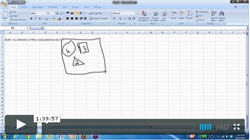
Lecture Description:
In this lecture you will learn:
- Test documentation
- Test cases- format – excel, word
- Peer review
- Example test scenarios and test cases
Day 6 – files and running notes
1) Day 6.docx
*******************************
Day #7: Test Environment set up, Coverage, Bug Injection rate, Test Readiness review
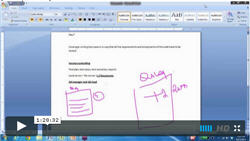
Lecture Description:
In this lecture you will learn:
- What is Coverage?
- Version controlling
- Test environment details: Dev, QA , prod
- Characteristics of good environment
Day 7 – files and running notes
1) Requirments for Kaiser Permanent_Rasika.docx
2) Test Readiness Review Checklist.docx
3) Day 7.docx
*******************************
Day #8: Test Data, Incident, BVA, EP, Error guessing
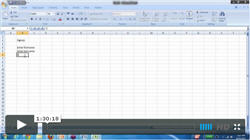
Lecture Description:
In this lecture you will learn:
- What is Incident?
- What is test data
- Field level validations
Test design techniques:
- Boundary value analysis
- Equivalence partitioning
- Error guessing
Day 8 – files and running notes
1) Day 8.docx
*******************************
Day #9: Test Cases, Scalability, Decision Table, State transition diagrams
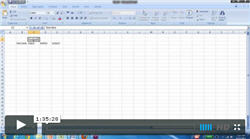
Lecture Description:
In this lecture you will learn:
- Test case design techniques:
- Decision table
- State transition diagram
- Example Test case template
- Example test plan template
Day 9 – files and running notes
1) Decision table.xlsx
2) Example test plan.docx
3) State transition diagram.docx
4) Word _Test case template.docx
*******************************
Day #10: Test Execution Entire Flow and Test Reports
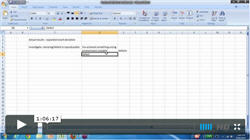
Lecture Description:
Learn following Test execution details in this lecture:
- Test documentation
- Test data gathering
- Test execution report
- Bug report
- Actual result
- Pass percentage
- Execution rate
- Risk based testing
Day 10 – files and running notes
1) Class notes day 10.xlsx
*******************************
Day #11: Defect life cycle, Defect management, Test Reviews
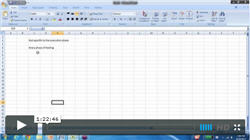
Lecture Description:
Learn what is:
- Desk Checking
- Defects – Defect Management, Defect Lifecycle
Discussion on following fields in defect reporting:
- Defect ID number
- Descriptive defect name and type
- Source of defect – test case or other source
- Defect severity
- Defect priority
- Defect status (e.g., open, fixed, closed, user error, design, and so on) – more robust tools provide a status history for the defect
- Date and time tracking for either the most recent status change, or for each change in the status history
- Detailed description, including the steps necessary to reproduce the defect
- Component or program where defect was found
- Screen prints, logs, etc., that will aid the developer in the resolution process
- Stage of origination
- Person assigned to research and correct the defect
Day 11 – files and running notes
1) Week 3 day 1.ppt
2) Defect managment and Stress testing.xlsx
*******************************
Day #12: Test Strategy, UAT
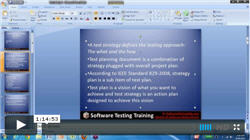
Lecture Description:
Learn in this lecture:
- Defining Test Strategy
- What it contains?
Main topic of learning is UAT (User Acceptance Testing)
- Alpha and beta testing
- Testing team’s task for the UAT phase
*******************************
Day #13: Traceability Matrix, Risk Analysis, JIRA
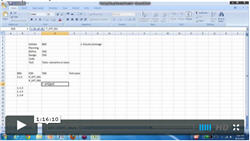
Lecture Description:
What you will learn in this lecture:
- Tractability matrix
- Risk Analysis
Main topic: JIRA defect and test management tool
You will learn how to use JIRA tool for defect logging and test project management.
*******************************
Day #14: Bugzilla, 7 Quality Control Tools
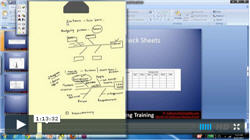
Lecture Description:
What you will learn in this lecture:
- 7 Quality control tools – various tools you can use for quality control.
- Overview of Bugzilla – Defect management tool
Day 14 – files and running notes
Bugzilla Link: https://landfill.bugzilla.org/bugzilla-tip/
*******************************
Day #15: HP ALM (QC), Benchmarking
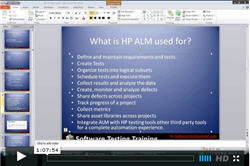
Lecture Description:
What you will learn in this lecture:
- HP ALM (QC) – Application Life-cycle management tool. Complete details of this with practical overview.
- HP ALM Demo.
*******************************
Day #16: Software Project End to end flow, Live Project Walk through, Test Automation
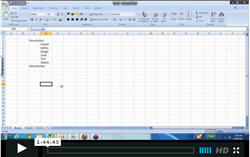
Lecture Description:
What you will learn in this lecture:
- Live Project – Software project end to end flow
- Overview of live project
- How you can start working on a project
Test automation orientation.
Day 16 – files and running notes
1) Class notes day 16.docx
2) Live Project.docx
3) Project activities.xlsx
*******************************
Day #17: QTP Walk through, Test case, scenario writing process in Automation
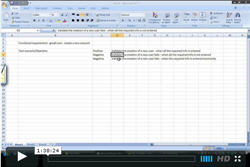
Lecture Description:
What you will learn in this lecture:
- Software test life cycle – A brief revision
- Automation orientation
- QTP Walk through
Day 17 – files and running notes
1) Class 17 notes.xlsx
*******************************
Day #18: QTP Overview, Live Project Test Documents, Testing Certifications (ISTQB, CSTE)
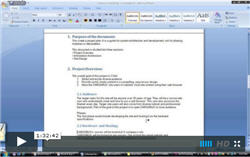
Lecture Description:
What you will learn in this lecture:
- QTP Overview
- Live Project FSD – Walk through
- ISTQB Certification Overview
- CSTE certification overview
Day 18 – files and running notes
1) SoftwareTestingHelp – Live Project FSD.docx
*******************************
Day #19: Resume Preparation, Software Configuration Change Management, Live project docs
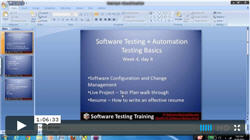
Lecture Description:
What you will learn in this lecture:
- Resume – how to write an effective professional resume
- Software configuration and change management
- Live project – Test plan walk through
Day 19 – files and running notes
1) Live Project_Test Plan.docx
*******************************
Day #20: Interview Preparation, Questions and Answers
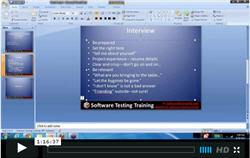
Lecture Description:
What you will learn in this lecture:
- Resume – how to write an effective professional resume
- Software configuration and change management
- Live project – Test plan walk through
*******************************
Payment Options:
If you want instant access to all course videos please subscribe using below Enroll Now button.
Once you start payment you can pay using Credit card or Paypal payment options.
Note for payment in INR: If you want to make manual payment using online bank transfer or cash deposit in INR please contact us at: info@softwaretestinghelp.com
We will be available via email support at all times.
Please feel free to contact us for any queries.
© www.SoftwareTestingHelp.com – Helping testers since 2006. All rights reserved.

